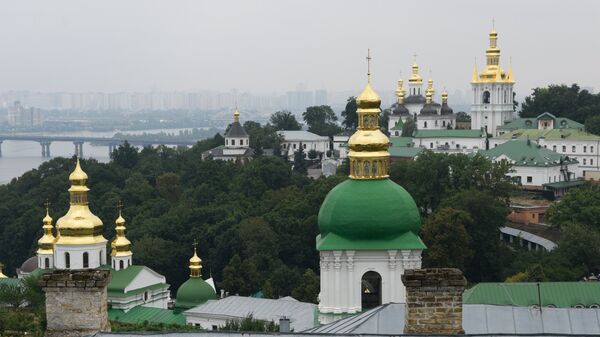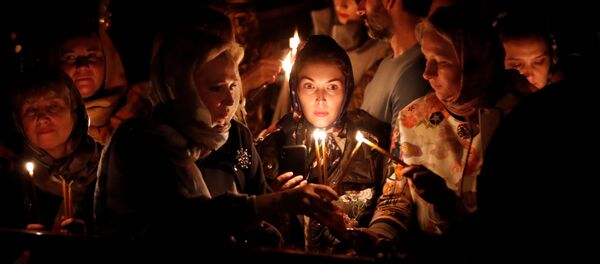The Council of Bishops of the Polish Orthodox Church has expressed its concern over the Ukrainian government's effort to split the Ukrainian Orthodox Church of the Moscow Patriarchate, the country's largest religious denomination, from the Russian Church.
In a message addressed to Ukrainian Orthodox Church of the Moscow Patriarchate head Onufriy, Patriarch Kirill of Moscow, and Patriarch Bartholomew I of Constantinople, the Council noted that "when it comes to canonical issues, one mustn't be guided by political considerations." It warned, furthermore, that "rash and premature decisions" on the matter would lead to a division of the Orthodox world.
Ukrainian President Petro Poroshenko announced that the Constantinople Patriarchate had begun the procedure to create an "autocephalic" or "self-headed" Ukrainian Orthodox Church late last month, in a move Kiev claimed would remove the Russian Church "as one of the key tools of influence" over the country ahead of next spring's presidential and parliamentary elections.
The Council of Bishops' message pointed to the fact that Ukraine has several competing Orthodox Churches, and stressed that this issue must be resolved before self-rule is possible. "The status of autocephaly may be recognized only for one Church existing in a state. Ukraine has several schismatic church groups which must first repent before the canonical Church. Only then can one speak of autocephalic recognition," the message stated.
Finally, the Polish Orthodox Bishops noted that the issue of self-rule also requires consultations with all local churches. "Reckless and premature decisions on autocephaly in Ukraine may lead to further divisions," their statement warned.
The Ukrainian Orthodox Church of the Moscow Patriarchate is the country's largest Christian community, enjoys the patronage of an estimated one in five Ukrainians, and has over 11,000 priests and close to 12,500 parishes and monasteries. Ukraine is also home to the Ukrainian Orthodox Church of the Kyivan Patriarchate and the Ukrainian Autocephalous Orthodox Church, two churches established in the early 1990s and which remain unrecognized by the world's canonical Orthodox Churches.



